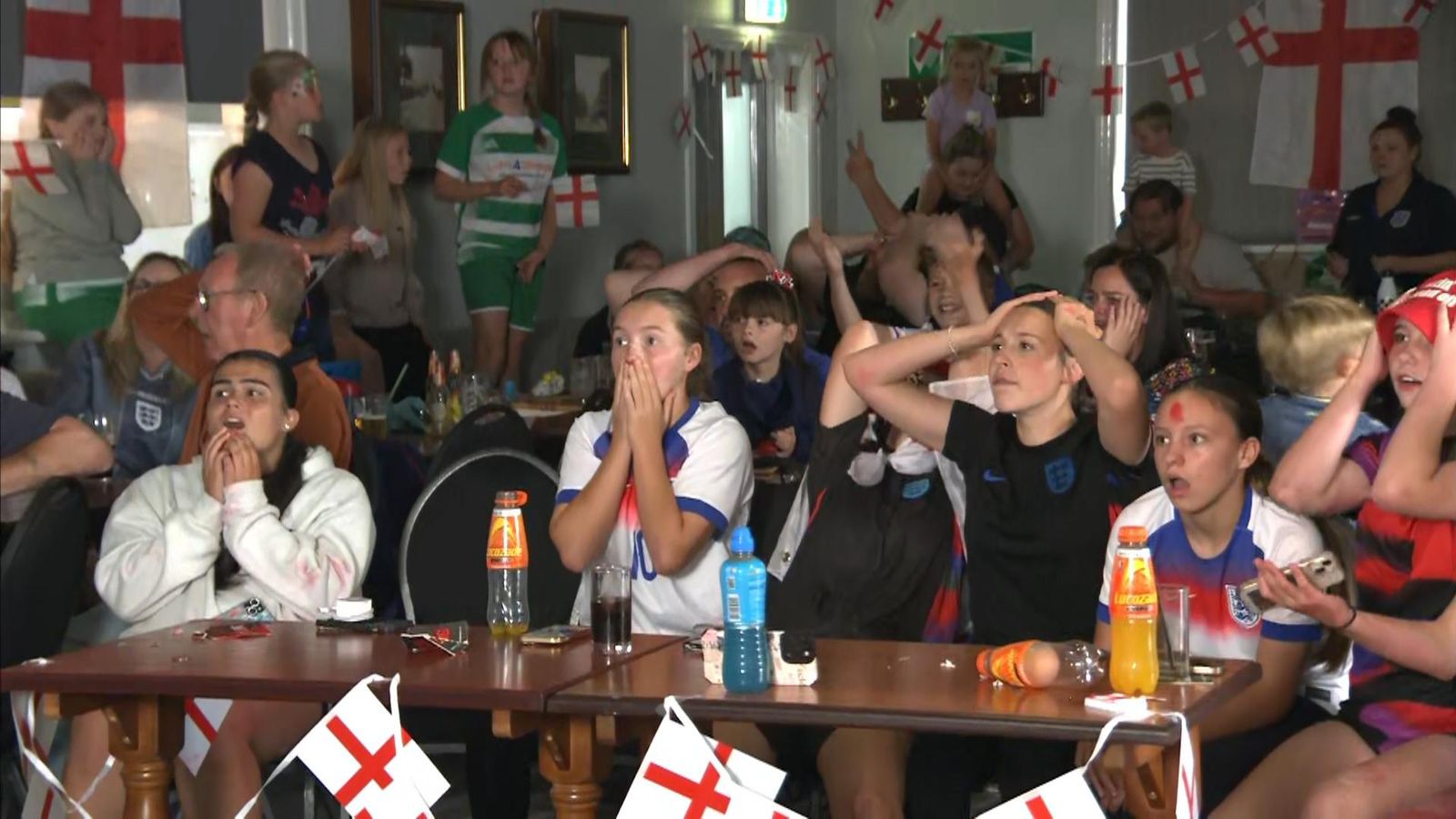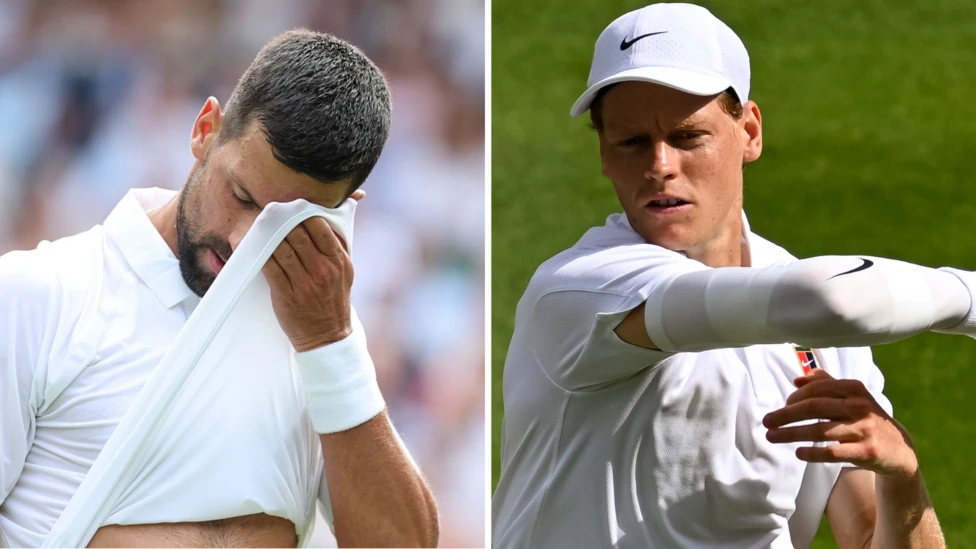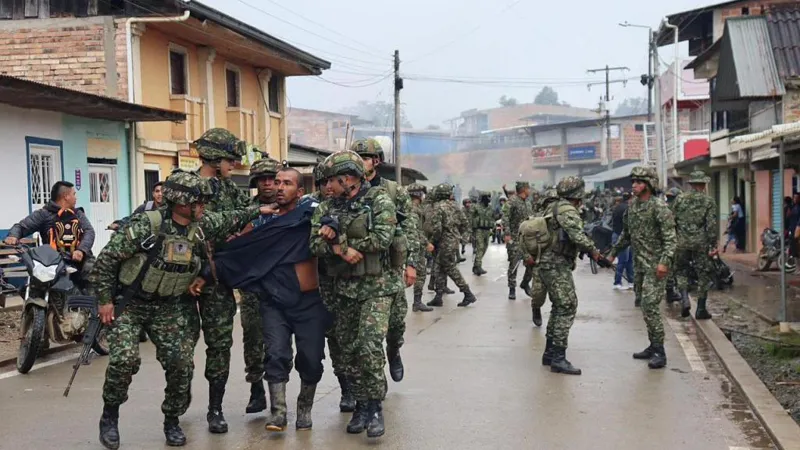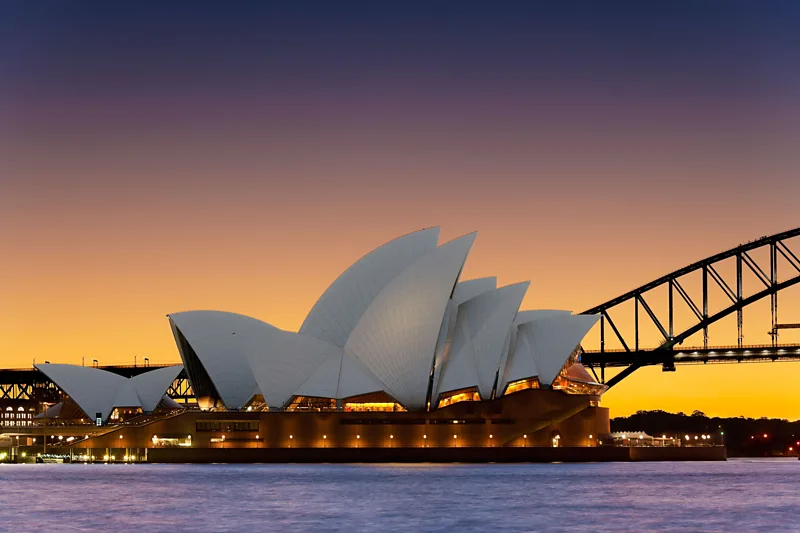Nato aims for Ukraine unity as Putin watches on
Nato is just hours away from its high-profile annual summit - a stress test for the alliance, with Russian President Vladimir Putin watching intently from the sidelines.
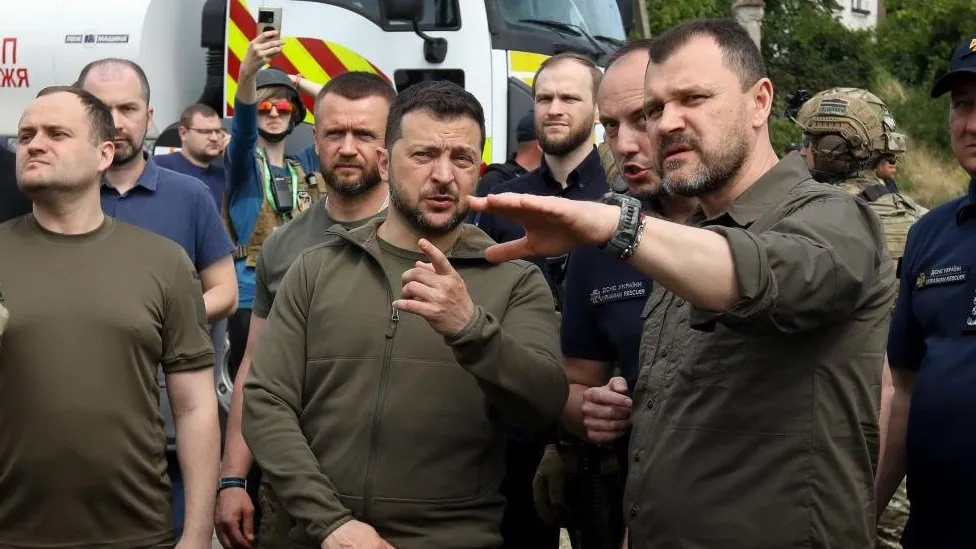
With Joe Biden, Emmanuel Macron, Rishi Sunak, Olaf Scholz and so many more world leaders attending, ambassadors of the alliance's 31 member states have been huddled together, arguing about what they can, should or will announce publicly on Ukraine.
So what is all the hoo-ha about?
This weekend marked 500 days since Russia launched its full-scale invasion of Ukraine, grabbing land, attacking civilians and abducting children.
To Vladimir Putin's dismay, Europe and its close ally the US have rushed to Ukraine's aid (some speedier than others - here's looking at you, Berlin), to the tune of $165bn (£129bn) spent in humanitarian, financial and military assistance by May this year, according to the respected Kiel Institute for the Global Economy.
It's been a delicate, at times uncomfortable, balancing act - for individual European countries, for the European Union, and arguably most of all for the Nato military alliance, which includes Russia's old enemy, the United States.
The conundrum: How do you send Moscow a clear message that the West won't stand by and allow the Kremlin to grab sovereign territory in Ukraine or anywhere else in Europe, while at the same time avoiding coming into direct conflict with nuclear power Russia and risking all-out war?
According to US President Joe Biden: "I don't think there is unanimity in Nato about whether or not to bring Ukraine into the Nato family now, at this moment, in the middle of a war."
He pointed out that Ukraine joining would mean that "if the war is going on, then we're all in war. We're at war with Russia, if that were the case."
And 500 days into Russia's invasion, Nato's balancing act isn't getting any easier.
Ukraine is clear. It wants an equal seat at the Nato table - with all the security guarantees that go with that - and it wants it now.
Or, because it recognises Nato can't admit a new member while that state is at war, it wants at least "a clear signal that Ukraine will be in the alliance... not that the door is open for us, which is not enough, but that Ukraine will be in it", says its media-savvy President Volodymyr Zelensky.
Anything short of that and he has threatened to avoid the summit altogether, to the irritation of not a few Nato members, including Germany and the US.
If Mr Zelensky is a no-show, the optics of Western unity with Ukraine - aimed as a clear message to Moscow at the summit - will be disastrous.
The main problem is Nato already told Ukraine it belonged in the alliance back in 2008, well before Russia's invasion.
Expectations are high that Nato must now offer Kyiv something else of significance. But what?
High-level diplomats from a number of key Nato nations spoke to me for this article on condition of anonymity, so as to be able to voice their observations freely.
They say Nato members are united over Ukraine belonging inside their "family". But they remain divided over the details.
The summit is being held in Vilnius, the capital of Lithuania. It is one of the three tiny Baltic nations in Russia's backyard that were swallowed up and occupied by the Soviet Union at the end of World War Two.
Lithuanians, Latvians and Estonians emote with Ukraine's pain. They, along with fellow eastern European nation Poland, which also sees itself as a former victim of Russian aggression, demand Ukraine be given fast-track Nato membership after an eventual ceasefire with Moscow.
But Nato decisions require unanimous agreement amongst member countries. Germany, the US and the UK are among the more cautious.
Firstly, because of formal conditions the alliance would normally want an accession country to fulfil before becoming a member.
"Much as Ukraine deserves to be part of Nato, we have the same concerns now as we did back in 2008," one influential diplomat told me.
"We need to see reforms, a fight against corruption and proper control over armed forces," he said. But he added that he thought the Ukrainian authorities had learned a clear lesson from the corruption in Russia's military that swallowed up billions and left the Russians weakened and ill-prepared for battle.
Some Nato countries also fret that if there is a cast-iron promise to admit Kyiv as a member immediately after a ceasefire with Russia, that could encourage Moscow to prolong its assault on Ukraine even further.
First, strategic patience - as Camille Grand, ex-Nato and now defence expert at the European Council on Foreign Relations, puts it. A clear pledge from the West that they're in it for the long haul. And that Russia shouldn't believe it can out-wait the West over Ukraine.
I was struck during my conversations with diplomats how relaxed their countries seem about the slower pace of Ukraine's counter-offensive against Russia.
They seemed of the same school of thought as Britain's Foreign Secretary, James Cleverly, who points out that "this isn't a Hollywood movie".
"Moscow had a long, long time to prepare for this invasion," one ambassador told me. "And we now expect Ukraine to have dramatic success in three or four weeks? That's just unrealistic."
"Ukraine is trying to make progress while respecting human life," commented another, comparing that to what he called Russia's meat-grinder attitude, pushing its soldiers "over the top" to get mown down in droves.
"Do we have questions in private about how fast Ukraine gets through munitions? Absolutely!" a more plain-speaking diplomat observed. "But it's important the Ukrainians don't feel we're breathing down their neck.
"We're giving them important military support, increasingly more sophisticated and they - and Moscow - need to know it's going to keep on coming."
One of the important conversations at the Vilnius summit will focus on Europe's defence industry: The investment needed to ensure supplies can keep flowing to Ukraine, while still leaving EU and Nato members with enough defence capabilities to look after themselves.
Also the question of harmonisation possibilities - right now, it's a bit of a mess. Each Nato country sends its own military aid to Ukraine, leaving Kyiv grappling with different models of armoured vehicles, tanks, etc. Not exactly the most efficient way forward.
The largest donors of military aid to Ukraine
Second, in the absence of immediate Nato membership for Ukraine, a group of countries (centred around but not limited to the UK, US, France and Germany) are forming a "coalition of the willing" to give Kyiv security guarantees. The more cautious like the US refer to that as "security assurances". More details are expected to emerge during the summit.
Third, on Day Two of the summit, Nato will convene a newly formed Nato-Ukraine Council - which would make it especially awkward if President Zelensky decided not to attend! The idea of a council would be to upgrade Kyiv's association with the alliance, providing it with greater access to Nato resources.
Fourth, Nato is also likely to discard its normally required Membership Action Plan for Ukraine, sparing Kyiv at least some of the lengthy and phased preparatory process that candidates normally work through to join.
Ultimately no-one in Nato is questioning the need to support Ukraine in the short, medium and long term. Right now, it has a blank-ish cheque for its counter-offensive.
Some Nato members - notably Italy - worry though about public opinion remaining in favour of costly support for Ukraine. The alliance also needs to work (hard) on a common position on Russia for when the war ends.
Officially Nato members say it will be up to Kyiv to decide when conditions for ceasefire talks with Moscow have been met.
But behind the scenes, diplomats tell me there could come a point when the West might whisper to Kyiv it should take a ceasefire within reach, rather than lose more Ukrainian lives and spend billions more of Western money on a war that can't be won.
Though that conversation, they insist, is definitely not for now.
-bbc




